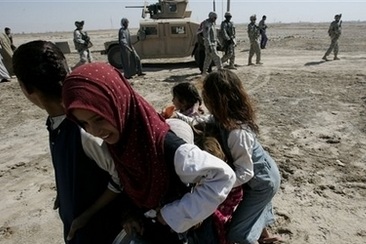US troop depression on rise in Afghanistan
(Agencies)
Updated: 2008-03-06 17:25
Updated: 2008-03-06 17:25
US troop morale improved in Iraq last year, but soldiers fighting in Afghanistan suffered more depression as violence there worsened, an Army mental health report says.
And in a recurring theme for a force strained by its seventh year at war, the annual battlefield study found once again that soldiers on their third and fourth tours of duty had sharply greater rates of mental health problems than those on their first or second deployments, according to several officials familiar with the report.
|
|
All spoke on condition of anonymity to describe the findings ahead of the study's release Thursday.
The report was drawn from the work of a team of mental health experts who traveled to the wars last fall and surveyed more than 2,200 soldiers in Iraq and nearly 900 in Afghanistan. In the fifth such effort, the team also gathered information from more than 400 medical professionals, chaplains, psychiatrists, psychologists and other mental health workers serving with the troops.
Officials said they found rates of mental health problems such as anxiety, depression and post-combat stress were similar to those found the previous year in Iraq, when nearly 30 percent of troops on repeat tours said they suffered a problem.
It was unclear how the new data might relate to a recent report showing that as many as 121 Army soldiers committed suicide in 2007, an increase of about 20 percent over the year before. The preliminary figures released in January said that there were 89 confirmed suicides last year and 32 deaths that were suspected suicides and still under investigation.
"Although we have had many successes, there are also areas of concern," Lt. Gen. Eric B. Schoomaker, the Army surgeon general, said in testimony prepared for a congressional committee hearing.
Soldiers in Afghanistan had rates of mental health problems similar to those in Iraq in 2007 with the exception of depression, officials said the new study showed. The percentage reporting depression in Afghanistan was higher than that in Iraq, and mental health problems in general were higher than they had previously been in Afghanistan. They gave no statistics, but a 2004 study conducted in the states with troops before and after they deployed to Afghanistan found that roughly one in 10 developed a mental health problem requiring treatment.
|
|
|
||
|
||
|
|
|
|


